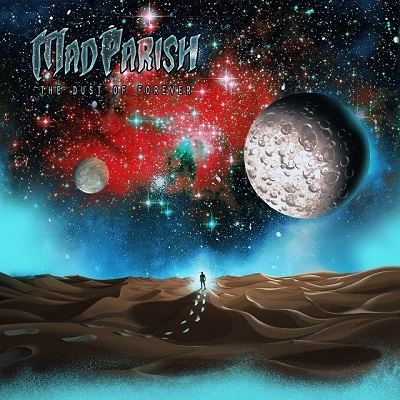SAXON’s Biff Byford Working On New Album With His Son, Talks Inspirations - “If You Had Long Hair Or You Were Into Any Sort Of Music That Wasn't Safe - It Was The Anti-Establishment Thing”
April 20, 2021, 3 years ago
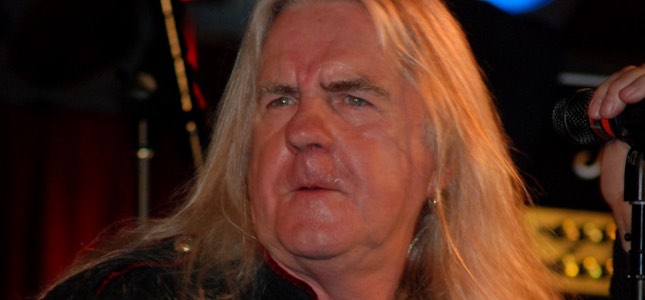
It’s late in the evening in the UK when legendary Saxon singer Biff Byford connects to Zoom to chat about the band’s journey back in time, recreating material that shaped them musically. The British heavy metal giants are promoting their covers album, Inspirations, out now via Silver Lining Music. Shall we reminisce…
“I’ve just come out to the studio, making an album with my son,” he begins. “He is playing guitar, I'm playing bass, and we're both singing, so we're making an album together, basically. We are getting along pretty good, actually. You know, he's obviously only 22, so he's got his ideas. And, you know, I'm 70 so I've got my ideas. But yeah, it's working out really good."
BraveWords: Is he a young headbanger? Because he wasn't born when Saxon was.
Byford: "No, not really a headbanger, he's more rock, you know? More sort of hard rock rather than metal. But yeah, it’s sounding really good. It's really the only thing to do these days, to be productive inside. There's nothing much else to do really, apart from grab the odd take away, and the odd bottle of wine. It's been a weird year really for me, because, you know, I had a heart attack a while ago, and then we went straight into the pandemic. So it's been a bit crazy. As soon as I got sort of well enough, I started to get motivated. I just finished my solo album, it had just come out when the pandemic started, more or less. So, we didn't really want to release the next Saxon album until we could tour. So, we put that back into February. So yeah, we thought we'd have a bit of fun and do an album that was about our influences and what inspired us to become band members in the first place."
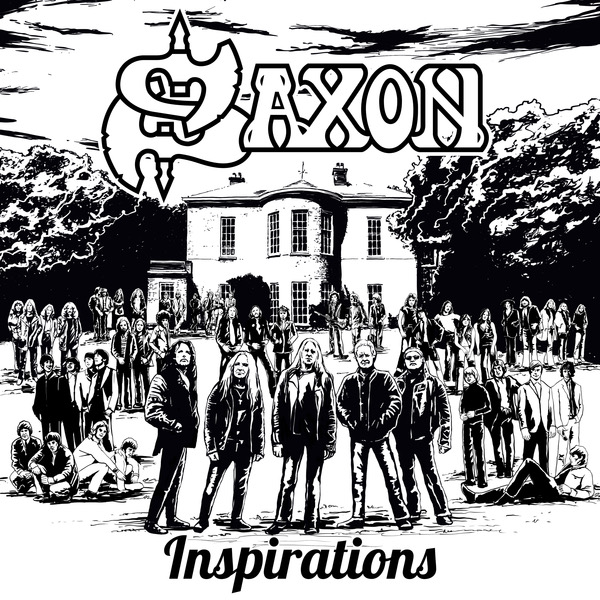
BraveWords: To begin, the album artwork is so beautiful with the black and white theme.
Byford: "Yeah, well, we wanted to sort of bring back that spirit of the late ‘60s, early ‘70s. People were just experimenting with loud rock music, using mobile studios rather than inside studios, and I just thought it would be a good idea to do it in a big house like they used to do back in the ‘70s. Really, like (Deep) Purple and (Led) Zeppelin did. Yeah, it was just a great, fun thing to do really."
BraveWords: I'm a little confused, because I was reading about the Brockfield Hall history (near York, UK) - historically, were there many bands that actually recorded in this building?
Byford: "No, no, we were the first, but I think that's the same as it used to be. I mean, back in the day I think people used to look for old houses and things because there weren't that many big studios outside of London, really, there was only Abbey Road, and maybe a couple more in the '70s. So, you know, people were experimenting with loud music, and they just used big houses. Sometimes they lived there and other times they just rented them. Sometimes they'd use big hotels, like Deep Purple did in Montreux. I just wanted to bring that back; we got together and stayed there for two weeks, living together and just playing some great music, getting great vibes."
BraveWords: Well, and probably the biggest example of recording at homes would have been Led Zeppelin in the '70s.
Byford: "Yeah, I think you're probably right. I know the Rolling Stones had their own mobile, I think they recorded in the '60s using the mobile, these big houses that they lived in. But yeah, I mean, ‘Smoke On The Water’ is about recording in a Chateau on Frank Zappa's mobile. So, yeah, we were doing a lot back then."
BraveWords: Now, here's a general question leading up to talking about the material on this covers album, because in the States in the '50s, we had Elvis, Chuck Berry, Little Richard, Bill Haley & The Comets, all the early greats. And then the Brits really grabbed the baton and embraced the blues, and to quote Bon Scott in “Let There Be Rock”, it's like when “rock 'n' roll was born”. So you had the Beatles, The Kinks, The Rolling Stones, and then it got heavier. What was it like growing up in that era? Many people point at The Beatles on Ed Sullivan as that life-changing moment.
Byford: "Yeah, I saw the Beatles in 1963 on our local TV channel. I think it was their first time they went on TV during their first single. I've watched them on TV and thought maybe I could do that, and learned to play guitar from that point. A little bit later on I got into the Stones. But I think that period of the '60s, when I was a teenager, it was a fantastic time. There was so much music there. We knew about Chuck Berry and all these other people. And, we used to play, my first band was a blues band, so we knew about John Lee Hooker and Blind Lemon Jefferson and all these people. Zeppelin came along and sort of used a lot of that blues influence on their first albums, so we were aware of what was happening. But, you know, we just kind of got the breakthrough in trying to write some of our own songs like they were doing. We were inspired by all that music coming out in the '60s, particularly."
BraveWords: Now, where were you listening to this? Was it from older siblings? Was it your parents? Was it the BBC?
Byford: Well, in the '60s, they banned radio stations playing this music, so we used to have to listen on the pirate radio stations the '60s, places like Radio Caroline, and Radio Luxembourg. We used to lay in bed at night under the covers, and like make a tent, me and my brother, and just listen to this great music that was being played by these pirate radio stations. All the Ike and Tina Turner stuff, the early rock and roll stuff, that was all played on pirate radio, because the BBC wouldn't play it."
BraveWords: Did this have anything to do with the church. Like this was the devil's music or something?
Byford: "Well, I think in England, in the UK anyway, it was the anti-establishment thing. I think they wanted teenagers to be seen and not heard, and the '60s was a massive rebellion against that. In America as well, obviously, and in Canada, teenagers weren't having it, being that it was also after the war. I think teenagers, and especially 18 to 21 year-olds wanted their own life, wanted their own music. wanted their own bands really, and that's where it all started. Now, I think maybe the same thing in the ‘60s was happening in the UK as the Elvis Presley thing was happening in America. That was very similar."
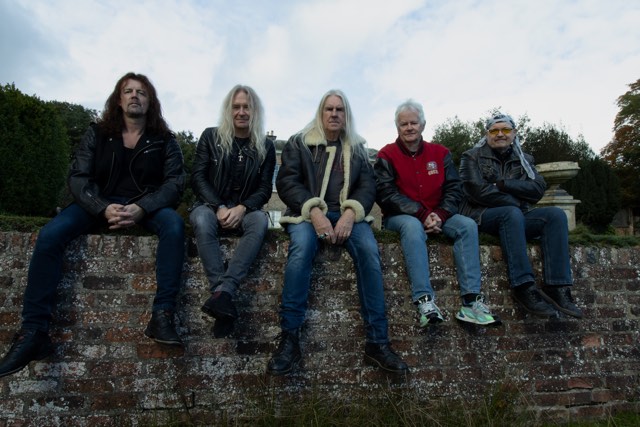
BraveWords : Yeah, cut off at the waistline.
Byford: "Yeah, exactly. Well, in the UK, people were just cut off generally. And so, you know, I think that's why with The Beatles and The Rolling Stones we can understand why teenagers were so fanatical about them, because they had never seen it before. In the UK, they were our own. It was our own sort of music in the '60s."
BraveWords: And cut off your hair.
Byford: "Well, that's all got to do with it , later on. You were looked at as anti-establishment, if you had long hair or you were into any sort of music that wasn't safe, wasn't considered safe."
BraveWords: A song like “Paint It, Black” was a pretty aggressive for it’s time.
Byford: "It was a dark song as well. I learned to play that riff on guitar, it's one of the first guitar things I ever learned. Hendrix was in the '60s as well, and that was a lot heavier. ‘Voodoo Child’ and ‘Hey Joe’ were pretty heavy metal for its day; it was quite out there, Hendrix. I think all that mishmash of rock music was really great. I think the Rolling Stones and Hendrix, and maybe The Kinks were probably a bit on the rockier side than The Beatles. But yeah, it was a great time, the '60s. I didn't really see any bands live in the '60s, I was a bit young. I didn't live in a city, I lived in a village, so I didn't really see many bands. In the '70s I started to see bands and went to a few big festivals."
BraveWords: And in terms of the people on this covers album, who have you met?
Byford: "Most of them really. I wouldn't say we were drinking buddies, but most of them. I don't really know Zeppelin, but I've said hello to Jimmy Page a few times at award ceremonies, but I don't think he actually knew who I was. I met Phil Lynott, the guys in Toto, Black Sabbath - we toured with Black Sabbath in America back in the day, so I would say I've met at least 60% of the bands that are on the album."
BraveWords: Now there's this one icon that is on my shortlist to sit and have a drink with at a pub, but I can't because he's deceased - did you ever drink with Bon Scott?
Byford: "I met Bon Scott back in the day, but only to say hello, I was at a bar with him. The Hammersmith Odeon, when they played there, I saw them in the early '70s - actually their first tour of England and they played ‘Problem Child’ which is why it's on the album. I don't think without AC/DC there would be a ‘Wheels Of Steel’ song because it's very influenced by AC/DC. Malcolm Young used to come see us quite a lot. We had the same promoter and the same PA company so he used to come and have dinner with us sometimes in catering at our gigs. I've met Brian (Johnson) the next singer quite a few times from Newcastle. I've met Angus a few times - we did some shows in America with them. We did a cruise with the drummer a few years ago. I've met most of them."
BraveWords: Now as I was stating, things got a lot heavier in the mid to late '70s with Sabbath and everything, and then two of the songs that you chose, it's almost like the roots of speed metal. When you look at Motörhead's ‘Bomber’ and Deep Purple’s “Speed King”. What what did you draw from that?
Byford: "A lot of people wanted me to do ‘Highway Star’, but I think ‘Speed King’ influenced me more, with songs like ‘Motorcycle Man’ and things like that. So for me, ‘Speed King’ is a more influential song as far as Saxon is concerned. And, with Motörhead, that was the first proper tour we ever did of the UK, the two of us and playing every night in 1979 on the Bomber tour, so I thought I'd put the ‘Bomber’ on there because it inspired us and influenced us to write songs like ‘Heavy Metal Thunder’, ’20,000 Ft.’, ‘Princess Of The Night’. Early Motörhead was very fast They played very fast songs with shotgun lyrics and we love that, so the Bomber album was a very influential album for Saxon. I sang a low vocal on this track as well, so it sounds a little bit like Lemmy's singing with me. It's pretty cool. I think. I know Lemmy from way back, and I sang with Lemmy a few times, and he's sung on a few of our songs, so I know his style. Singing in that sort of key that Lemmy sang in, the octave that Lemmy sang in, he always sounded like he was reaching down to the absolute bottom of his soul, his voice. It's quite a unique sound that Lemmy had."
BraveWords: The Kinks second album Kind Of Kinks, was released in 1965, but they followed up with the single “See My Friends” later that year. Incidentally, in 2010 Ray Davies released a collaboration album of the same name which featured Metallica, Jon Bon Jovi, Bruce Springsteen and more. Interesting that you would cover a one-off single. Were those releases common in the UK?
Byford: "I mean, the thing we need to remember is that in the '60s and parts of the '70s, albums weren't really the thing, singles were the thing. Albums were just all the singles in one place, especially with The Beatles and The Stones definitely, most of the songs on their albums were singles at some point. And I think it was the same with The Kinks. All the bands, really, I think the record companies sold millions of singles, and the albums were just like an afterthought, most of the time. So, with ‘See My Friends’, I didn't really want to do one of the big Kinks songs, but I wanted to do a song that I like - it was me that picked The Kinks. And I think ‘See My Friends’ is a great song, and me and my son worked on the vocals together on that, and rearranged it a little bit, and I think it sounds pretty cool.”
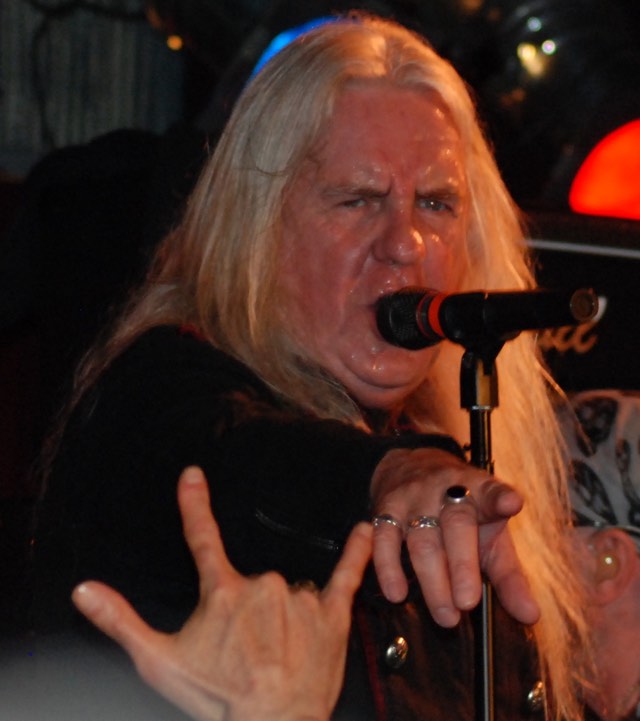
BraveWords: Well, you know, what you did at the end of this covers record, you put a bow on it, because you're not just seeing your friends on the cover, you're hearing them, right?
Byford: "Yeah, well, I suppose you're right. Yeah, definitely."
BraveWords: I spoke with Steve Lukather and and I showed him my 45 of “Hold The Line” which I bought when I was ten! He said, "Well, I was 19 when I played guitar on it!” This legendary song resonated with a young kid in Canada, and obviously resonated with you.
Byford: "Well, I'll tell you the story of the song. I’ve told Steve this because I've met him a few times. The way he plays that riff you know, he plays it on a root and fifth chord, which is just two notes, and because it's just two notes, usually on the E string and the A string, or sometimes the A string and the D string, but you can move up and down the fret very quick, playing that type of chord. And we basically took that style that Lucas played on that song, and used it for '747' and 'Bands Played On' if you listen to those. Even 'Princess Of The Night' is that similar style, and it enables you to play chords very fast. It's nearly like a solo really. That song influenced us in writing, I don't really think Toto influenced too much, because they were a little bit sort of jazz, more jazz-funk oriented most of the time. But we just took the essence of the song, the skeleton of the song, which is the guitar riff actually, and we took the keyboard part and transposed it onto guitar. Then I sang it really rock-y rather than singing it more, I mean, there's a lot of R&B soul sort of influences in there the way they sing it, but I just sang it heavy rock. And a lot of people have said to me, you know, that could have been a Saxon song back in the day."
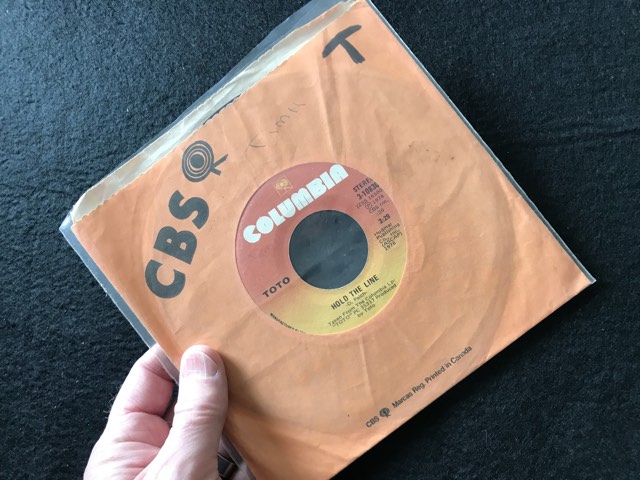
BraveWords: So there was never any band discussions about covering Toto's ‘Africa’, then!
Byford: “(Laughs) I don't think ‘Africa’ influenced us, although it's a beautiful song! Or ‘Rosanna’, we wouldn't cover ‘Rosanna’ because it's not that style. That style that Lukather came up with back in the day was very influential to our songwriting. The thing is, as well, when you're doing these albums you have to be honest, because if you're going to tell people this is a collection of songs and bands and music that influenced us, then you have to be honest. And that's why it's such a massive cross section of different bands and music, because, actually, we're trying to be honest, to let people know what influenced us. But it was from ‘Hold The Line’ that we ripped him off."
BraveWords: One fact about cover albums is that younger generations may be encountering these songs for the first time in their lives? It's almost like a new release.
Byford: “Yeah, I think probably people have heard the band, but they haven't studied the band, you know what I mean? When you're doing a covers album, like we've just done, I think you have to take the songs to pieces a little bit, and just try and find out the essence of the song. Sometimes it's the guitar riff, sometimes it's the vocal style, you know. I think the way we did it, we wanted to approach it in a more sort of, what does this song bring to us? What did it influence us to do? What did it inspire us to do? And I think these songs are that, basically. Led Zeppelin, Black Sabbath, Deep Purple, are a massive inspiration on bands, you know, because they did what they did. And they also wrote great songs, which influenced our style of writing. So that's why they're on there."
BraveWords: Well, I don't want Lukather to dominate this conversation, but I asked him if there was somebody living or dead that he would love to have worked with, because as you know, he's worked with everyone, and he said, Jimi Hendrix. And you cover “Stone Free”. Did you ever see him live?
Byford: "No, I never saw Hendrix live. I would have if it had been around where I was, if you know what I mean. But the problem is, you would have had to be really quick to get tickets to see Hendrix, and I don't know if my father would've let me go or whatever, so it was just difficult in those early days. A couple of guys that were in the band, that I knew from earlier saw Hendrix, and it sort of changed their life. I mean, that's how it happens every so often, some, some people come along and change the way that we do things."
BraveWords: Can you reflect on the passing of Eddie Van Halen.
Byford: "I think Van Halen was very similar to Hendrix and in the guitar playing world, definitely, I think Hendrix was more of a showman than Eddie Van Halen was. I saw Van Halen lots of times, actually. But yeah, I mean, he changed guitar playing forever. I think him and Steve Vai. Probably the most influential guitar player of the '80s I think. Doug Scarratt, our guitarist, would probably say that Steve Lukather was his sort of influence, because he's younger. But I think Hendrix and Van Halen are very similar in the fact that they changed a lot of new musicians, new guitarists, but also a lot of older guitarists that have been around a long time saw Van Halen, and Hendrix and changed their style, to move with the times."
BraveWords: Is there anything going on behind the scenes with the classic Saxon catalogue? And is there any one album that you listen to and think that it needs a polish, needs updating?
Byford: There's a couple of albums that need re-recording definitely. Yeah, I think with the pandemic thing that's been going on for a year now, there's a lot of companies looking to get a catalogue, you know. I've got catalogues that have only ever been with three companies. I think if somebody could achieve getting all the catalogues and putting out a box set, that you'd need a truck to carry, I think that would be cool. You know, where you can get every album and they include the band in the way they put these things together, rather than just stick them out, you know what I mean? Sometimes the record companies just stick out a box set, and the band doesn't even know they're putting it out. It would be nice to put out a box that encompassed a lot of our career and asked us to get involved. And if some albums were a have-to re-record them, it would be quite feasible to do that. Like Destiny, for instance, we could do that album without the keyboards, it would be fantastic, you know, so that would be good."
"Speed King" video:
(Saxon live photos by Mark Gromen / wall photo by Steph Byford)

